Why Monitored Security Systems Are More Effective Than Self-Monitoring
Key Takeaways
- Speed Saves Lives: Professional monitoring ensures immediate dispatch during fire or intrusion events, even if you are asleep or away.
- Reliability Matters: Unlike phone notifications, which rely on Wi-Fi and battery life, professional systems utilize cellular backups and redundant signals.
- Business Compliance: For commercial properties in Atlanta, professional fire alarm monitoring is often required by code to meet insurance and safety standards.
- Holistic Protection: Monitoring enhances the value of cameras and access control by providing real-time verification rather than just recording evidence.
Security is about more than just installing hardware; it is about the response when that hardware detects a threat. For property owners in Georgia, the debate between self-monitoring and professional monitoring is critical. While self-monitoring offers a sense of control, monitored security systems provide a layer of safety that an app on your phone simply cannot match.
From the bustling commercial districts of Buckhead to the quiet residential streets of Alpharetta, having a team of professionals watching over your property ensures that emergencies are handled swiftly and correctly. This guide compares the two approaches, explaining why professional oversight is the superior choice for protecting what matters most.
What Is a Monitored Security System?
When we talk about monitored security systems, we are referring to a setup where your alarm signals are transmitted to a 24/7 Central Station. This is a staffed facility where trained operators respond to alert signals immediately.
How Professional Monitoring Works Behind the Scenes
When a sensor trips—whether it is a door contact, a smoke detector, or a motion sensor—the signal is sent instantly to the monitoring center. An operator verifies the signal (often by calling the premises to rule out false alarms) and immediately dispatches the appropriate authorities: police, fire department, or EMS. This process happens in seconds, ensuring that help is on the way while you might still be processing what happened.
Types of Systems That Can Be Monitored
Monitoring isn’t limited to burglar alarms. Comprehensive protection includes:
- Intrusion Alarms: Protecting against break-ins.
- Fire Alarms: Critical for life safety and property preservation.
- Video Surveillance: Providing visual verification of events.
- Access Control: Managing entry points for commercial facilities.
Why Atlanta and Metro Georgia Properties Rely on Monitoring
In a metropolitan hub like Atlanta and its surrounding suburbs—from Roswell to Marietta—crime trends and fire risks vary. A professionally monitored system ensures that whether you are dealing with a break-in in a commercial warehouse in Norcross or a fire hazard in a home in Sandy Springs, the response is consistent and rapid.
Self-Monitoring vs Professional Monitoring: Key Differences
The rise of smart home technology has popularized self-monitoring, where the alarm system sends a push notification directly to your smartphone. While convenient for checking in on a pet, it has significant limitations during actual emergencies compared to professional security monitoring.
Pros and Cons of Self-Monitoring
Self-monitoring puts the burden of response entirely on you.
- Pros: No monthly monitoring fees; direct control over the system via an app.
- Cons: If your phone is on “Do Not Disturb,” if you are on a flight, or if you are in an area with poor signal (like a hiking trip in North Georgia), you will miss the alert. Furthermore, in a high-stress situation, you may delay calling 911 while trying to verify the threat yourself.
Pros and Cons of Professional Monitoring
- Pros: 24/7 vigilance, cellular backup, lower insurance premiums, and peace of mind. The system works even if your phone is dead.
- Cons: Involves a monthly service fee.
Real-World Examples of When Self-Monitoring Fails
Imagine you are on a business flight from Hartsfield-Jackson to New York. While you are in the air, a pipe bursts or a back door is kicked in at your home. Your phone receives the notification, but you don’t see it until you land two hours later. By then, the damage is done. With professional monitoring, the authorities would have been dispatched immediately.
Benefits of 24/7 Professional Alarm Monitoring in Georgia
Reliability is the cornerstone of effective security. Professional alarm monitoring in Georgia ensures that your safety net is always active, regardless of your personal availability.
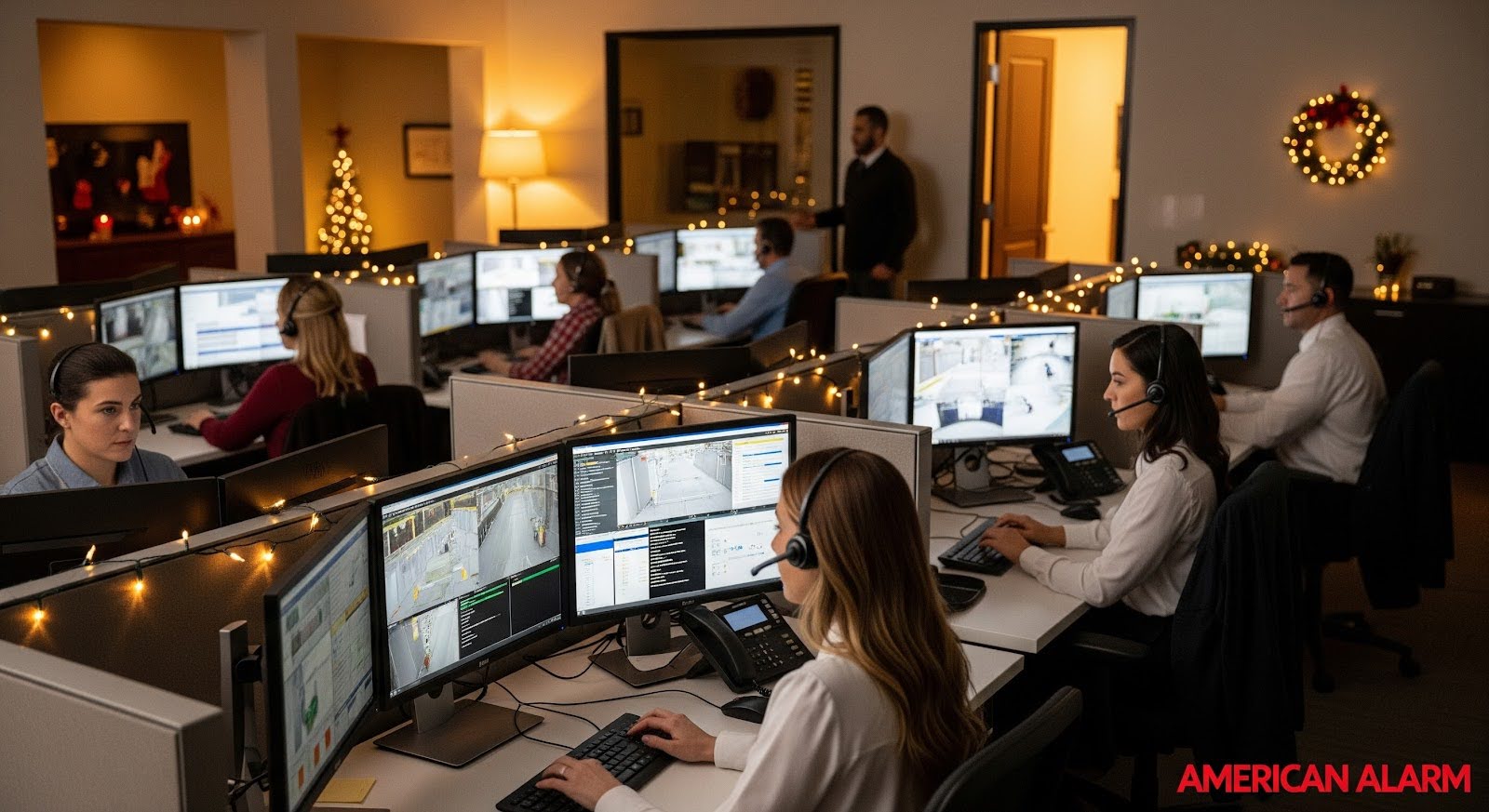
Around-the-Clock Human Response
Criminals do not work 9-to-5, and fires do not wait for you to wake up. A central station never sleeps. Operators are awake at 3:00 AM on a Tuesday and 2:00 PM on Thanksgiving Day, ensuring that security system monitoring in Atlanta is continuous and reliable.
Emergency Dispatch for Fire, Intrusion, and Life Safety Events
The primary benefit is the direct link to emergency services. In the event of a confirmed fire or panic alarm, the monitoring center speaks the language of first responders, providing them with the exact location and nature of the emergency, which can shave precious minutes off response times.
Reliability During Outages, Phone Downtime, and Travel
Professional systems utilize battery backups and cellular communicators. This means if the power goes out in Dunwoody during a storm, or if your internet service is down, your alarm signal still reaches the monitoring center. You cannot say the same for many Wi-Fi-dependent self-monitoring setups.
Why Monitoring Matters for Fire Alarm Systems
While a burglar alarm protects property, a fire alarm protects lives. In this context, self-monitoring is incredibly risky.
Code Compliance and NFPA Considerations for Georgia Businesses
For businesses, schools, and healthcare facilities, Atlanta fire alarm monitoring services are often a legal requirement. The National Fire Protection Association (NFPA) and local Authority Having Jurisdiction (AHJ) often mandate that commercial fire systems be monitored to ensure automatic dispatch.
Residential Fire Alarm Monitoring: Protecting Families While They Sleep
In a residential setting, smoke inhalation can incapacitate residents before they wake up. A monitored smoke detector sends a signal immediately. If the monitoring center calls and gets no answer, they dispatch the fire department. This is a vital layer of protection for homes in family-centric areas like Johns Creek and Cumming.
How Monitoring Enhances Security Systems, Cameras, and Access Control
Monitoring transforms standalone hardware into an integrated ecosystem.
Intrusion and Burglar Alarm Monitoring
Sensors on doors and glass-break detectors are only effective if someone reacts to them. Professional monitoring ensures that a tripped sensor in a jewelry store in Buckhead triggers a police dispatch, not just a local siren that might be ignored.
Security Camera Monitoring and Video Verification
Cameras are often seen as reactive—recording evidence for later. However, security camera systems and video monitoring allow for video verification. When an alarm trips, operators can view live feeds to verify if a person is present, reducing false alarms and prioritizing the police response.
Access Control and Managed Entry Systems
Access control systems do more than unlock doors. When monitored, they can alert business owners to “door forced open” or “door propped” events, ensuring the building perimeter remains secure even during business hours.
Monitoring for Residential vs Commercial Properties in Georgia
The needs of a homeowner differ vastly from those of a facility manager, yet both require the reliability of professional monitoring.
Residential Monitoring Across Metro Atlanta Suburbs
For homeowners in suburbs like Douglasville, Acworth, and Milton, the priority is family safety. Effective residential alarm monitoring for Atlanta homes focuses on perimeter protection, life safety (fire/CO), and protecting the home during vacations and work hours.
Commercial Monitoring for Atlanta Businesses and Facilities
Businesses in hubs like College Park and Decatur face different risks, including internal theft, liability claims, and after-hours intrusion. Robust commercial alarm systems in Atlanta require monitoring that can handle partition arming (securing the warehouse while the office is open) and integration with fire codes.
Choosing a Professional Security Monitoring Partner in Atlanta
Not all monitoring services are created equal. When protecting your property, local expertise matters.
Questions to Ask a Monitoring Provider
- Is the monitoring center UL-listed?
- What is the average response time?
- Do you offer cellular backup?
- Can you integrate with my existing equipment?
Why Local Expertise Matters in Georgia
A national provider might not know the specific permit requirements for false alarms in the City of Atlanta versus Gwinnett County. A local partner like American Alarm, serving the area since 1995, understands the local landscape, police jurisdictions, and specific risks associated with our geography.
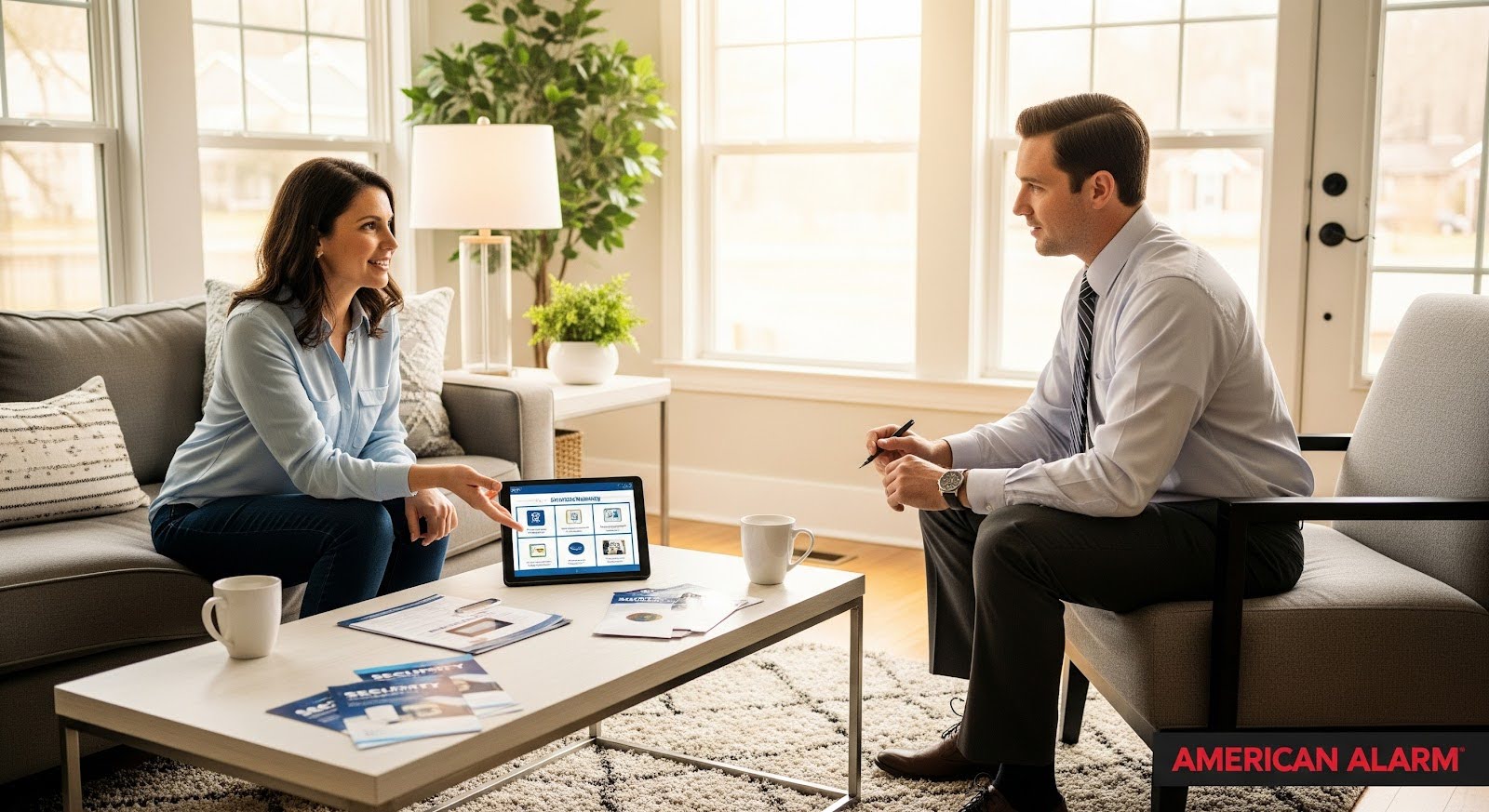
When to Upgrade from Self-Monitoring to Professional Monitoring
If you have recently expanded your business premises, travel frequently, or simply want the assurance that someone is always watching, it is time to upgrade. Self-monitoring is often a “better than nothing” solution, whereas professional monitoring is a complete security solution.
Next Steps: Evaluating Monitored Security Systems for Your Georgia Property
Relying on self-monitoring leaves gaps in your security that criminals can exploit and emergencies can bypass. Whether you are securing a retail storefront in Kennesaw or a family home in Vinings, professional monitoring offers the redundancy and speed required for true peace of mind.
Simple Checklist: Are You Relying Too Much on Self-Monitoring?
- Do you turn your phone off or use “Do Not Disturb” while sleeping?
- Does your Wi-Fi go down during power outages?
- Do you travel for work or vacation where cell service is spotty?
- Would you panic if you received a burglary notification at 2 AM?
If you answered “yes” to any of these, your current setup may be insufficient.
Secure Your Georgia Property with Confidence
Don’t wait for a missed notification to realize the limitations of self-monitoring. Ensure your property is protected by a team that is ready to act 24/7.
Ready to see how professional monitoring could protect your Georgia home or business more effectively than self-monitoring alone? Contact American Alarm for a monitoring quote to review your options today.
Frequently Asked Questions
Does professional monitoring work if my power goes out?
Yes. Professional security systems typically use a backup battery and cellular communication, ensuring the alarm signal can still reach the central station even during a power outage or if the phone lines are cut.19
Can I still use an app if I have professional monitoring?
Absolutely. Most modern professional systems include a mobile app that allows you to arm/disarm your system, view cameras, and receive notifications, giving you the best of both worlds: convenience and professional backup.20
Is professional monitoring required for fire alarms?
For most commercial buildings in Georgia, local fire codes and insurance policies require fire alarm systems to be monitored 24/7 to ensure immediate dispatch. For residential homes, it is highly recommended but not always legally required.
How does video verification reduce false alarms?
With video verification, when an alarm is triggered, the monitoring center can view a brief video clip to see if a person is present. This helps confirm it is a real crime in progress, which can lead to a higher priority response from police.
What happens if I accidentally trigger my alarm?
If you accidentally trip your alarm, the monitoring center will typically call you first to verify. If you provide your safe passcode, they will cancel the dispatch. This helps prevent unnecessary visits from emergency responders.
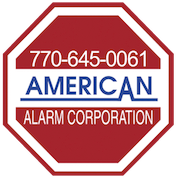
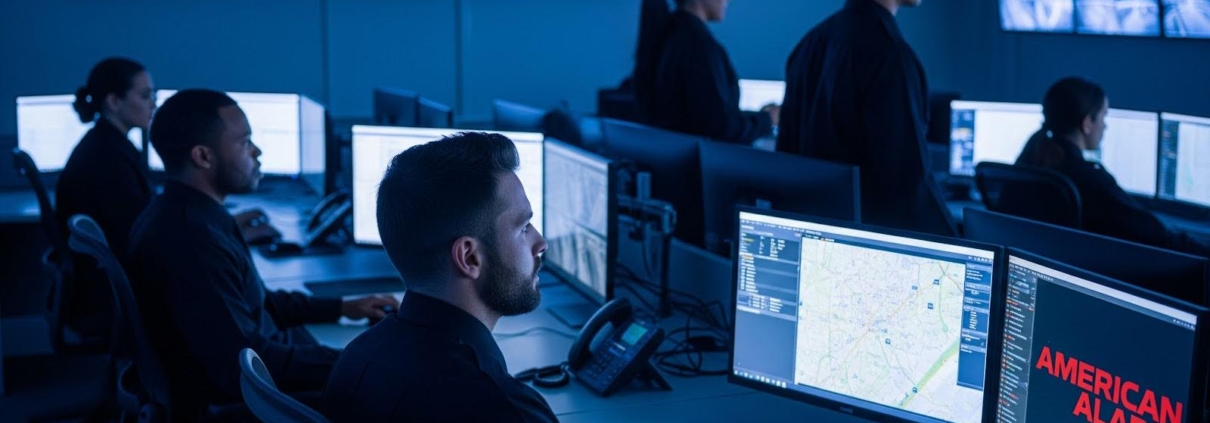
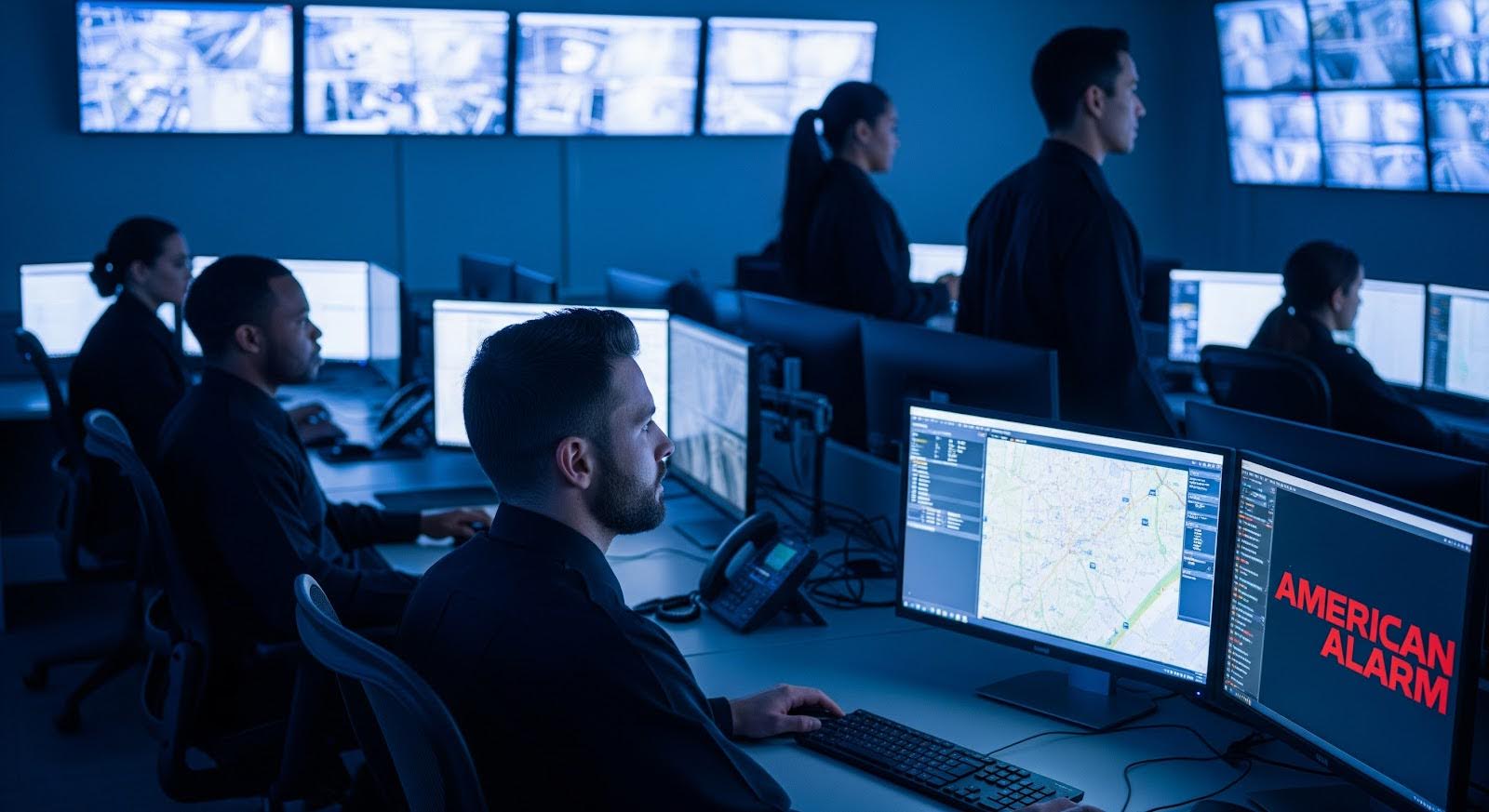


Leave a Reply
Want to join the discussion?Feel free to contribute!